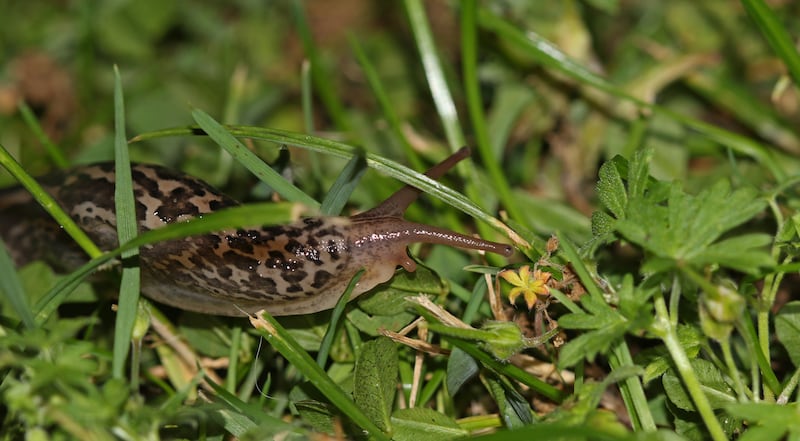Gardeners are being urged to rethink their relationship with slugs and snails in a campaign encouraging them to “make friends with molluscs”.
Slugs and snails which chomp through tender leaves of prized blooms have long been thought of as a gardener’s worst enemy, regularly coming top in an annual list of pests based on queries to the Royal Horticultural Society (RHS).
But now the RHS and the Wildlife Trusts have teamed up to change the perception of these creatures, highlighting the positive role they play in garden ecosystems, and help people adopt a more environmentally-friendly approach to gardening.
The two charities say there around 150 species of slugs and snails in the UK, and only a “small fraction” pose problems for gardeners.

They are part of nature’s clean-up crew, feeding on rotting plants, fungi, dung and even dead animals, helping recycle nutrients back into the soil.
Slugs and snails are a key food source for many garden visitors such as frogs and ground beetles, and declining species including song thrushes and hedgehogs.
They can even clean algae off the glass of greenhouses – leaving behind their trademark trails – and some territorial slug species such as leopard slugs can help ward off other slugs and protect plants from grazing.
The Wildlife Trusts and RHS are urging people to follow five tips to live harmoniously alongside slugs and snails:
– Create habitats such as log piles, mulch and natural debris in the garden, which give them food and shelter and may make them less likely to venture into your flowerbeds.
– Choose plants that are less attractive to slugs and snails, or more resilient to their eating habits. These could include lavender, rosemary, astrantia, hardy geraniums, hellebores and hydrangeas.
– Implement barriers such as copper tape and wool pellets that may provide some protection for vulnerable plants.
– Regularly monitor plants and handpick off any slugs and snails you find. putting them on the compost heap or areas with less vulnerable blooms. Evening patrols with a torch can be effective as they are most active at night.
– Encourage predators by creating habitat such as long grass, log piles and wildlife-friendly ponds for frogs, toads, ground beetles and birds, as they will help keep numbers of slugs and snails down.
Helen Bostock, RHS senior wildlife specialist, said the charity wants everyone to help protect the plants and wildlife that benefit gardens and protect the wider environment.
“While a small number of slugs and snails can cause damage to certain plants, overall they bring many benefits to the garden and contribute to a balanced ecosystem,” she said.
“We hope that by highlighting the crucial work that molluscs do in our gardens we can help give them a well-deserved reputation makeover.”
Kathryn Brown, from the Wildlife Trusts, said slugs and snails play an important role in maintaining natural functions.
“The Wildlife Trusts want everyone to avoid using pesticides which can indiscriminately harm other creatures too.
“You can grow a range of plants that snails and slugs tend to not eat, such as onions and hardy herbs, instead of trying to control them.
“These marvellous molluscs help to enrich and aerate the soil, and they’re also a great food source for other incredible animals such as newts and beetles,” she said.








